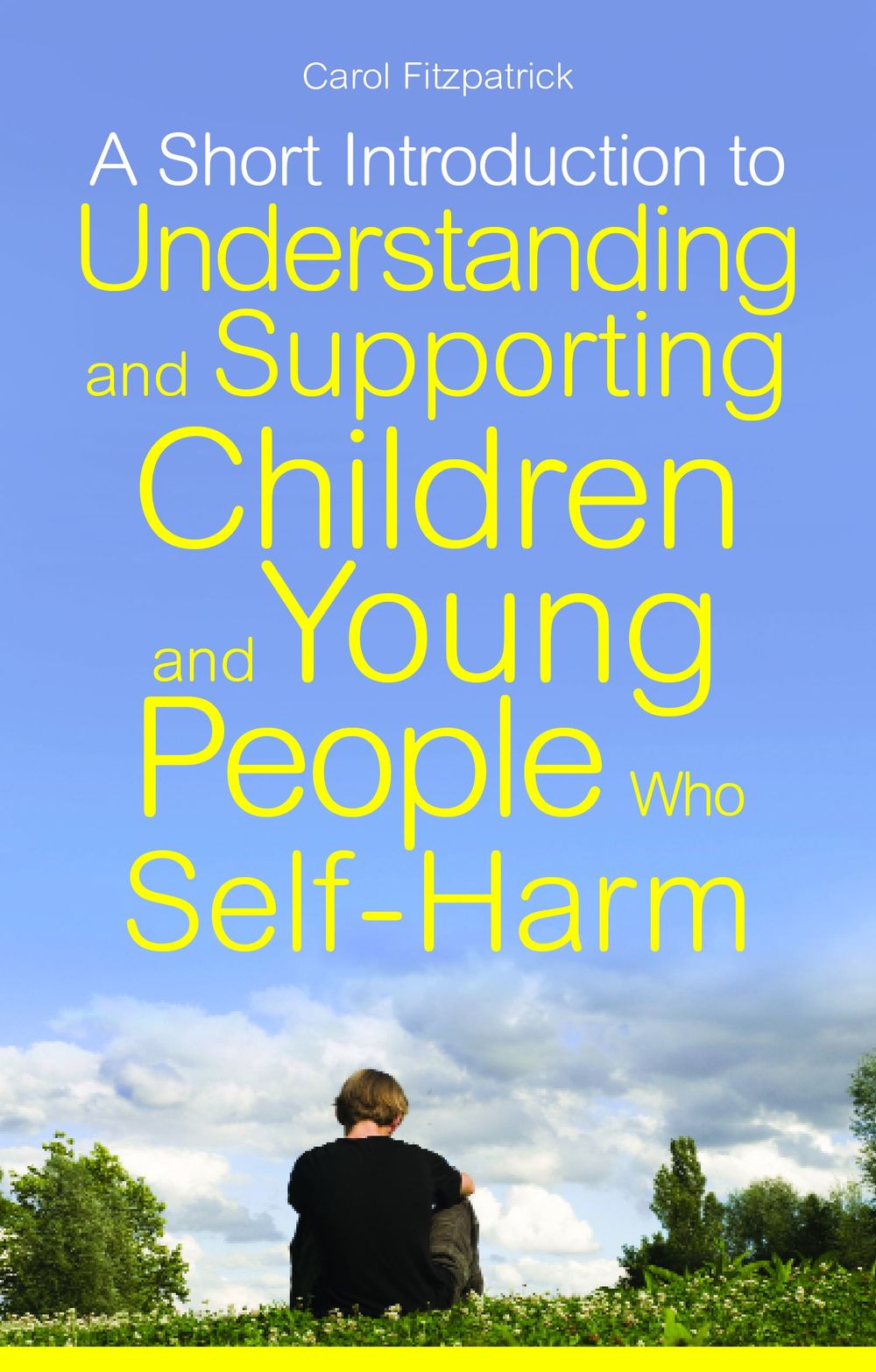 In this article Professor Carol Fitzpatrick gives her top tips for adults working with and supporting young people who self-harm whether you’re a parent, teacher, youth worker or psychologist. Recognising self-harm amongst young people and how to approach this topic with sensitivity can be difficult. Carol Fitzpatrick’s new book A Short Introduction to Understanding and Supporting Children and Young People Who Self-Harm guides the reader through what self-harm is, how to recognise it, and how best to respond.
In this article Professor Carol Fitzpatrick gives her top tips for adults working with and supporting young people who self-harm whether you’re a parent, teacher, youth worker or psychologist. Recognising self-harm amongst young people and how to approach this topic with sensitivity can be difficult. Carol Fitzpatrick’s new book A Short Introduction to Understanding and Supporting Children and Young People Who Self-Harm guides the reader through what self-harm is, how to recognise it, and how best to respond.
Self-harm and suicidal behaviours are increasingly common in young people, but are often hidden problems. Most young people who self-harm say it gives them some relief from unbearably painful emotions or numbness. Most say they are not suicidal, but a small number are truly suicidal, and it is known that young people who repeatedly self-harm are at increased risk of dying by suicide.
Adult support can be very helpful to a young person who is troubled, and it is often underestimated. Such adult support might be provided by a relative, a youth worker, a teacher, a coach – any adult who has an interest in the young person. Actively listening if the young person does want to talk is very helpful. Sometimes contact with and interest shown by someone who is less emotionally involved is much more acceptable.
An adult who ‘keeps an eye out’ for the young person, who checks in with them regularly, who may have a shared interest, and who does not expect deep conversations about how they are feeling, may provide invaluable support, often without knowing they are doing so. This is particularly so for young men, who find it notoriously difficult to talk about their feelings.
Keeping communication going can be a struggle, but self-harm can be seen as a form of communication that all is not well for the young person. Calmly stating what you have noticed helps to let the young person know you are aware that things are not easy for them. Don’t expect the young person to open up and talk about their feelings, but simply registering your concern without being too intrusive can be supportive.
Remaining calm is helpful, but is easier said than done. For teachers, who are often aware that a student is self-harming, knowing the school’s policy and being able to discuss the situation with colleagues can provide invaluable support.
Formal help, such as counselling or attendance at a mental health service will be needed for young people whose difficulties are seriously interfering with their health or their ability to get on with life, or where there is a significant risk of suicide. It can be very difficult to get young people to attend such services, but parents can do a lot to encourage attendance.
Mentioning your concerns based on what you have observed, rather on what you think the young person may be feeling, seems to work better. Be prepared for an angry denial that there are any problems, and try not to take personally hurtful responses such as ‘you’re the one with the problem- if it wasn’t for you I’d be fine’. A helpful response to that type of remark is to agree that they might be right, and that is one of the reasons why you will be jointly seeking help. Try not to get drawn into a lengthy argument, and be prepared to keep any appointment you have made – even if you have to attend without the young person in the first instance.
Looking after your own health and well-being is important if you are a parent or carer of someone who is self-harming. This may be far from your mind, but by doing so you provide a good role model for the young person, as well as keeping your own spirits up. Exercise, healthy eating and relaxing, all help with this. The most up-to-date research shows that most young people who have self-harmed in adolescence are no longer self-harming by the time they reach young adulthood. This is encouraging, and offers hope to those who care for and about these troubled young people.